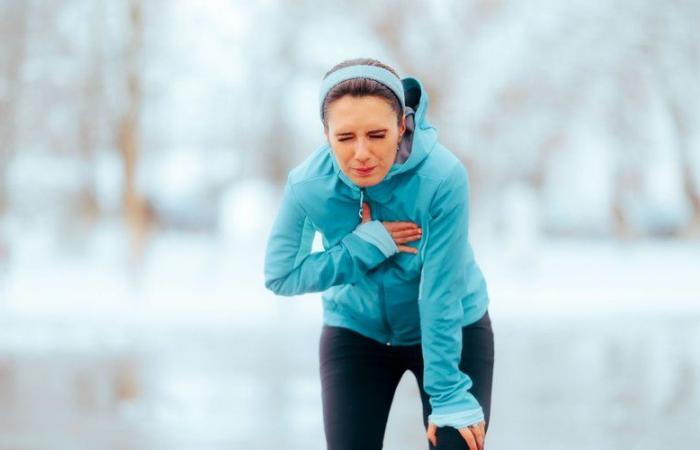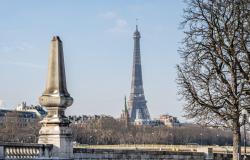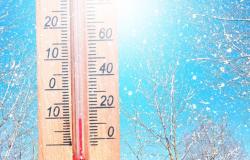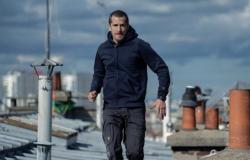
Winter arrived in France this Thursday, November 21. The opportunity to recall good practices to protect your heart and arteries, particularly weakened by the cold.
The cold is carrying out its first offensive of the season with temperatures often close to zero degrees this morning of Thursday, November 21. Cold air affects the body, notably reducing the role of barriers against infections of the mucous membranes of the upper respiratory tract. Less well known, the cold also attacks the arteries and the heart. Thus, according to a study published in the British medical journal in 2010, and relayed by the French Federation of Cardiology, “each 1°C reduction in temperature is associated with a 2% increase in the risk of myocardial infarction in the following 4 weeks, with the periods at greatest risk being the first 2 weeks.”
By what mechanisms does cold act on the heart?
Increased blood pressure: cold on the skin is detected by cutaneous thermoreceptors which stimulate the sympathetic nervous system and cause a vasoconstriction reflex, the reduction in the diameter of blood vessels. This helps prevent heat loss but at the same time increases blood pressure. “Cold winters increase the severity of hypertension and increase the risk of cardiovascular events such as myocardial infarction and stroke in hypertensives,” advances the Montreal Heart Institute.
Rupture of atherosclerotic plaques : As a reminder, atheroma is the deposit of plaque essentially composed of lipids (fats) on the wall of the arteries. “In winter, the slightest physical activity requires a significant effort from the heart, so much so that walking in the cold would be equivalent to running 100 meters. The coronary arteries contract (spasm), which can cause atherosclerotic plaques to rupture. This can then induce an acute accident by thrombosis. Professor explained in 2019. Claire Mounier-Vehier, cardiologist at Lille University Hospital and then president of the French Federation of Cardiology.
Augmentation de la coagulation sanguine : Excessive blood clotting can lead to blood clot formation. When a clot obstructs blood flow in the arteries, it can lead to a heart attack or stroke. And the cold promotes this coagulation: “the heart begins to beat faster, its oxygen consumption increases and the vessels contract, promoting blood clotting”, explains the French Federation of Cardiology.
Risk of dehydration: this is another effect of vasoconstriction. In addition to the fact that we are less likely to drink when it is cold, the contraction of blood vessels is responsible for a reduction in blood flow and the quantity of water transported in the blood. This dehydration “reduces the fluidity of the blood and requires more effort from the heart to function”, according to the French Cardiology Federation.
Who are the people at risk?
Patients suffering from cardio-cerebrovascular pathology: high blood pressure, heart failure, history of myocardial infarction, angina pectoris, coronary or arterial revascularization (stent, bypass surgery, etc.), heart valve disease, etc., heart rhythm disturbances, stroke, etc.
Elderly people (over 70 years old) : They actually have more difficulty adapting to temperature variations. “The danger exists with negative temperatures, but also with variations in temperature from one day to the next, knowing that the wind increases the sensation of cold and its harmful effects tenfold.”
How to protect your heart from the cold?
The French Cardiology Federation provides 5 tips to protect your heart and arteries this winter:
1 – cover yourself warmly, particularly around the extremities and head – particularly the face which shows significant heat loss – in order to avoid the phenomenon of vasoconstriction;
2 – avoid exertion without overheating in the cold. It is necessary to take time to acclimatize to low temperatures;
3 – limit your activities in the cold during pollution peaks. In fact, microparticles and nitric oxide also increase the risk of heart attack;
4 – feeling of tightness in the chest, palpitation, shortness of breath or chest pain on exertion, dizziness: consult at the slightest symptom;
5 – beware of the cold, stress and tobacco combo: “stress causes an increase in heart rate. Cold constricts the coronary artery. Tobacco also accelerates the heart, while further intensifying the narrowing of the artery”develops the French Federation of Cardiology. These three factors together can accelerate clogged arteries.





